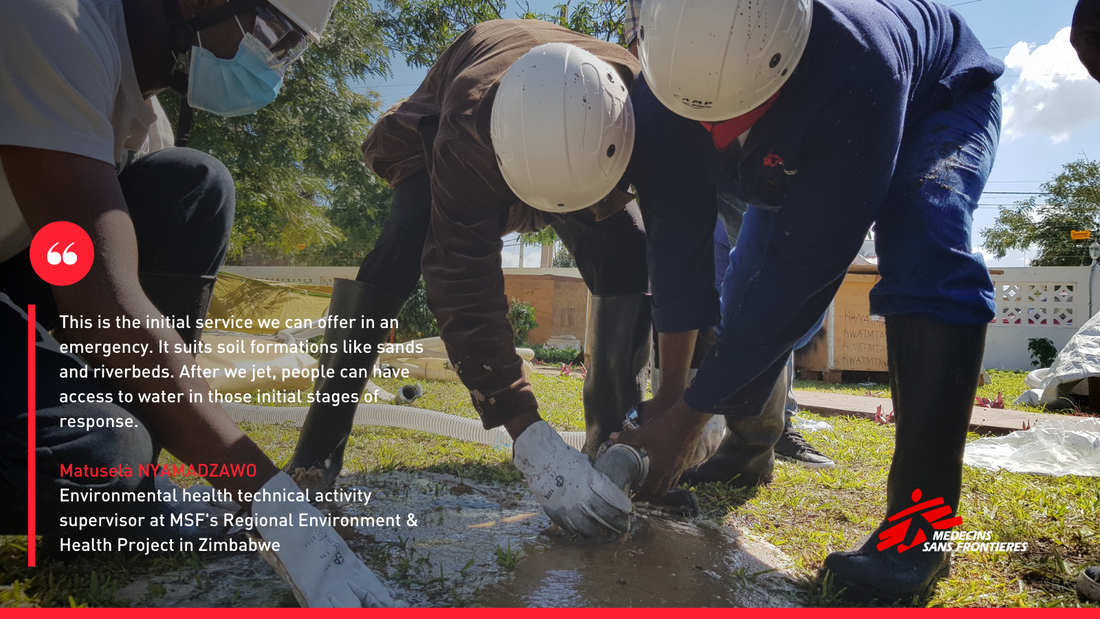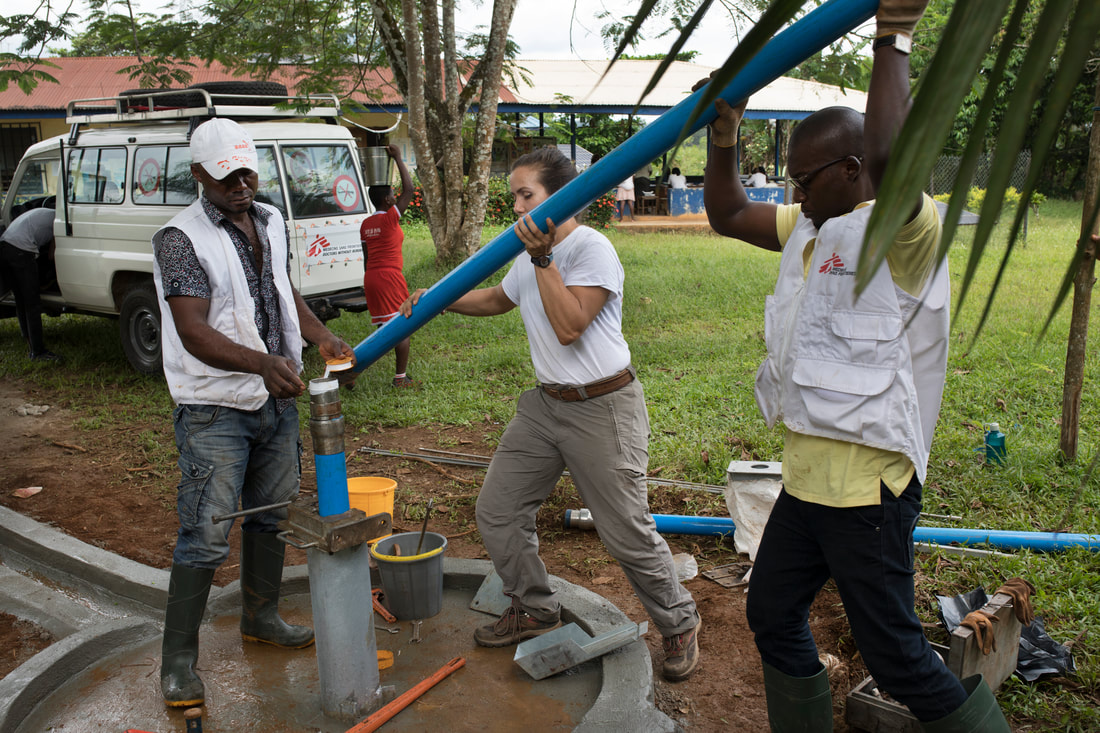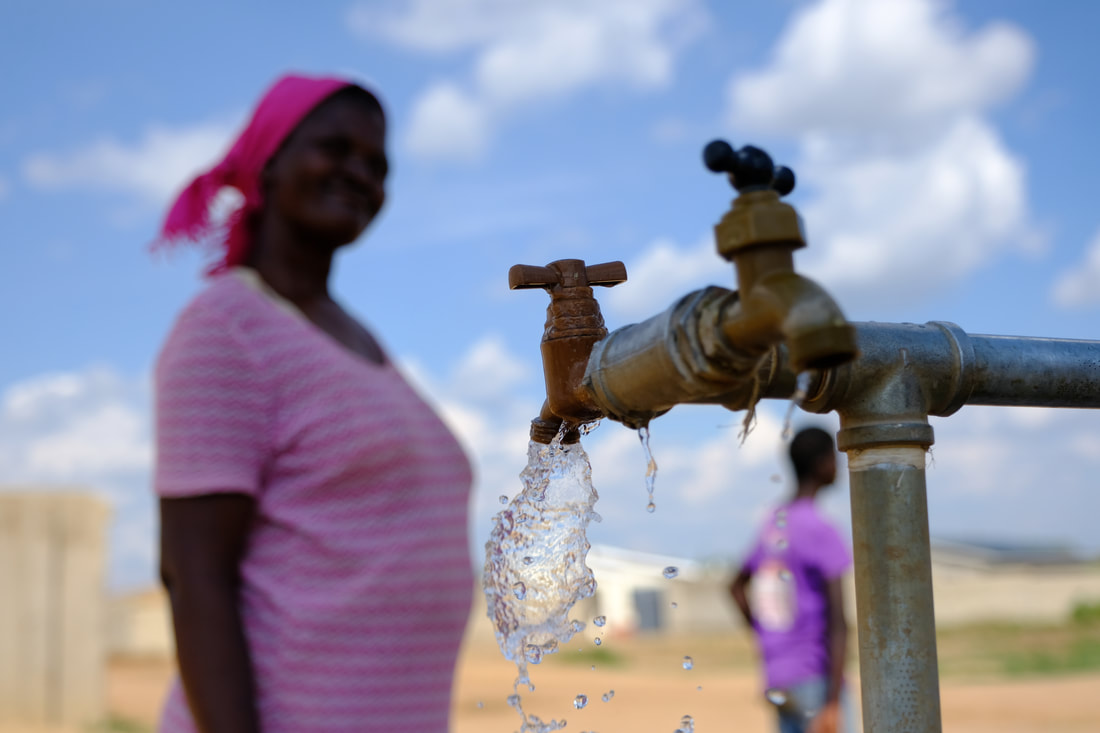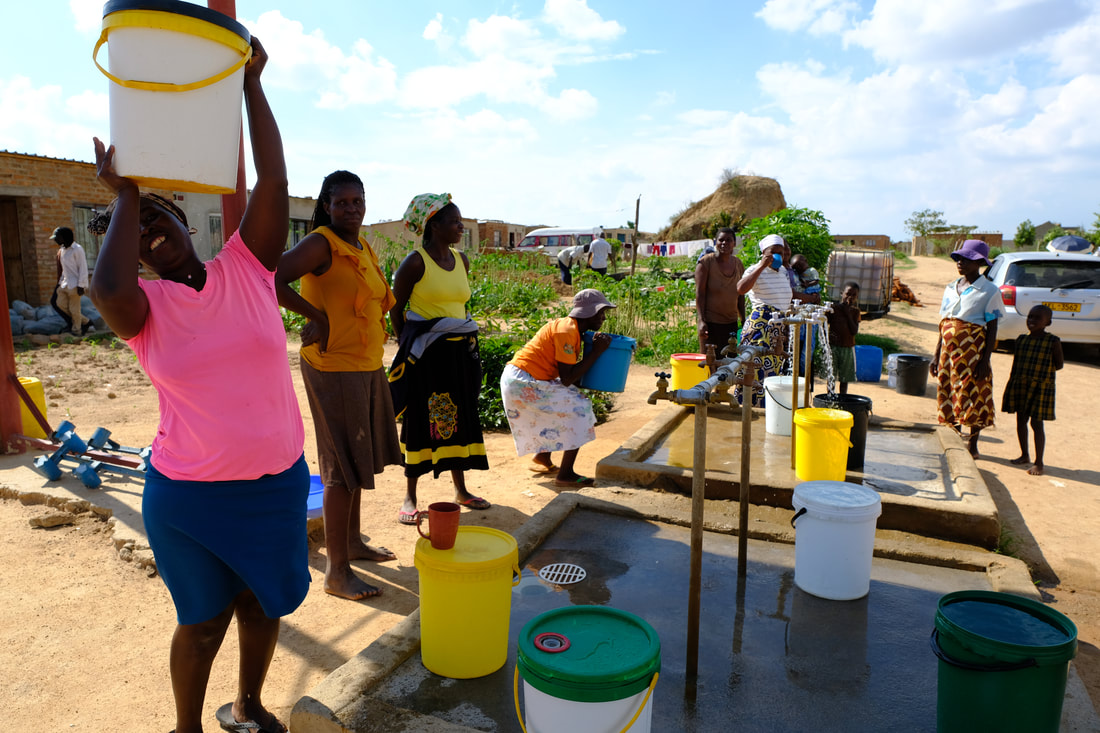Pollet Group and Médecins sans frontières (Doctors without borders)
In 2018, Médecins sans frontières (Doctors without Borders) launched a pilot project to prevent waterborne diseases by rehabilitating and drilling wells in Zimbabwe. Zimbabwe experienced extreme outbreaks of cholera and typhoid affecting 10,000 people. MSF created a long-term solution by rehabilitating 50 water wells and train participants to drill water holes. This approach resulted in a drop from 10,000 cholera cases to just 2 in 5 months. Pollet Group will help to scale up this project to new countries as a philanthropic partner of Médecins Sans Frontières.
Médecins Sans Frontières
|
Médecins Sans Frontières (MSF) is an international, independent medical humanitarian organization. They provide medical assistance to people affected by conflict, epidemics, disasters, or exclusion from healthcare. They do so irrespective of race, religion, creed or political convictions. Their actions are guided by medical ethics and the principles of impartiality, independence and neutrality. Médecins Sans Frontières and its members maintain complete independence from all political, economic or religious powers.
|
|
Médecins Sans Frontières & environmental health
To control or prevent disease transmission to staff, patients and communities, Médecins Sans Frontières engages in environmental health activities that go well beyond the provision of water and sanitation. Environmental health includes a large variety of activities that are context specific. These measures range from all interventions related to provision of drinking water, provision of sanitary facilities, liquid and solid hazardous waste management, the management of human remains, air quality management, biosafety in health care settings, toxic chemical exposure management, and others. |
Médecins Sans Frontières & drinking water
|
In crisis areas, emergency aid is often the only source of safe water for populations. MSF believes that access to water and health is a human right. By providing water, sanitation and hygiene, MSF prevents the onset of disease. To prevent water-borne diseases, such as cholera and typhoid fever, Médecins Sans Frontières provides drinking water in vulnerable contexts. MSF establishes community clubs made up of local residents and village leaders. These community clubs receive training and infrastructure materials from MSF to rehabilitate contaminated and drill new wells. The ultimate goal is for the community clubs to maintain these wells themselves, without any support from MSF. In this way, diseases can be sustainably controlled.
|
MSF pilot project in Zimbabwe
|
In 2018, MSF launched a pilot project to prevent waterborne diseases by rehabilitating and drilling wells in Zimbabwe. The results were very successful. Zimbabwe experienced extreme outbreaks of cholera and typhoid affecting 10,000 people. MSF began an emergency response by providing medical care to patients suffering from these water-borne diseases. However, treating patients without addressing the cause was a short-term approach. MSF wanted a long-term solution. For this reason, 72 community clubs were created, 50 water wells in poor condition have been rehabilitated, and all participants received training to become self-sufficient and received infrastructure materials to rehabilitate and drill the holes. This approach resulted in a drop from 10,000 cholera cases to just 2 in 5 months.
|
Pollet Water Group wants to help MSF scale up this project to new countries. Because of its key role in the provision of drinking water to sustainably control or prevent disease transmission, Pollet Water Group decided to join forces and become philanthropic partner of Médecins Sans Frontières. Discover more: https://www.msf-azg.be/fr





